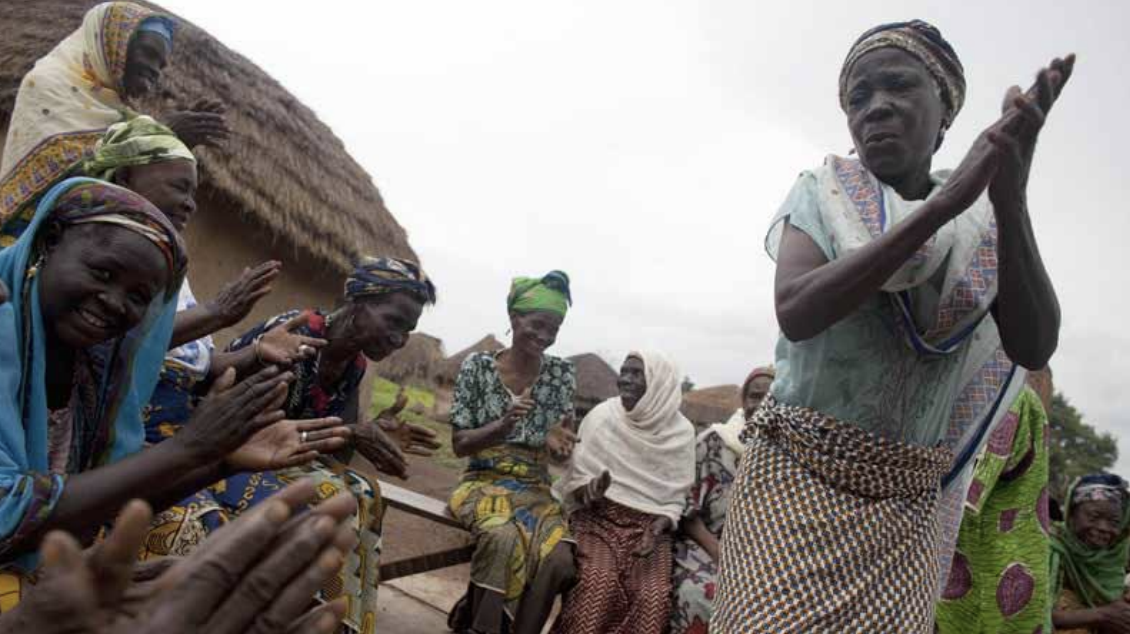Women in Ghana are still accused of being witches

Many students learn about the infamous Salem witch trials, during which a number of women were sentenced to death in 16th-century Massachusetts based on accusations that they were possessed by the devil or other supernatural spirits. Centuries after those trials, women are still accused of witchcraft in Ghana. In fact, in 2012, around 800 women and 500 children in northern Ghana were estimated to be banished to and kept in 10 known “witch camps” for this very purpose.
These “witch camps” are segregated settlements to which women are sent after being found guilty of witchcraft by their communities’ chiefs and, in many cases, driven from their homes due to threats of violence and acts of discrimination. The camps offer poor living conditions and little hope of a healthy life for those who live there, but are still often better alternatives to the treatment these women face if they stay in their communities. The organization ActionAid reported in 2012 that a mother of three was beaten and set on fire after she was blamed for making her child sick through witchcraft and that, two years before, a 72-year-old woman accused of witchcraft was set on fire.
It’s undeniable that broader attitudes of and power dynamics related to sexism and misogyny influence who is accused of witchcraft. In Ghana, authority figures — ranging from those who lead religious institutions to community chiefs — are men, and the culture is based on entrenched gender stereotypes. Widowed, childless, and/or disabled women are particularly vulnerable to being socially cast out or subject to violence, as they are seen as violating their gender role in relation to men. In fact, the women most frequently targeted by accusations of witchcraft are older women, widows, women with disabilities, and unmarried women, according to ActionAid. The same study also found that more than 70 percent of residents in one of the camps were accused of being witches, and then banished, after their husbands died.
Such patriarchal and sexist cultural norms about witches are also still reinforced in Ghanaian media, which frequently depicts women as jealous wives and evil mothers who cause events attributed to witchcraft, and who are also subjected to banishment, violence, and stigma. The power of the media cannot be understated. Take, for example, the 2014 case of the Ghanaian celebrity Castro, who drowned alongside a woman. That woman was blamed for his death and compared to "Maame Water," a Ghanaian female sea goddess believed to lure in men and cause children to drown while swimming. This story was the highlight of media coverage throughout the year and continues to be used as a cultural reference that women are evil.
Recently, the Ghanaian government attempted to address witch camps by proposing forcing them to close. But this closure, some argued, would only create more violence against women, as their communities would seek an alternative approach to "deal" with witches. The immediate solution put forth by the government recommended how the camps can improve the living standards of women by providing them with basic amenities such as health and educational facilities, as well as improving sanitation within the camps.
Activists— like those involved in the organizations Anti-Witchcraft Allegations Campaign Coalition and the Southern Sector Youth & Women's Empowerment Network — argue that to really solve this problem, work must be done to promote change in social attitudes. This includes grassroots leaders running campaigns that work within local cultural norms and community systems and use informal education to change social perceptions about witches in communities gradually. To this effect, ActionAid recommends that women living in the camps must be encouraged to return home only after a sensitive and comprehensive program of reintegration, involving three key stakeholders: the women themselves, camp chiefs, and opinion leaders in the women's home communities.
More articles by Category: Disability, Misogyny, Violence against women, WMC Loreen Arbus Journalism Program
More articles by Tag: Africa, Women of color, Sexism



























